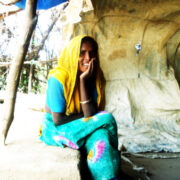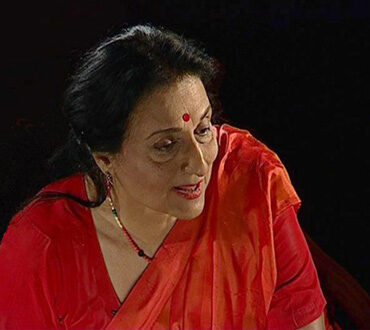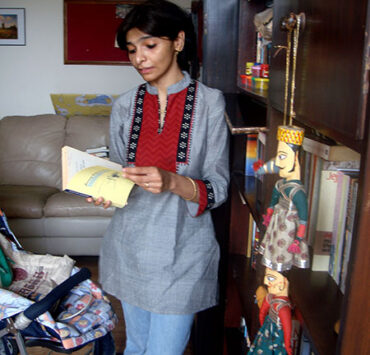Debutant author Samanth Subramanian’s new book Following Fish: Travels Along the Indian Coast traverses the length of the coastline, sampling fish and the histories of the villagers and fishermen whose lives are now in a historic flux. The following are excerpts from a brief chat with Subramanian about travel writing, personal histories, and what he really thinks about fish.

Sitting with the fishes.
How would you describe the book to someone who hasn’t read it?
The book is a travelogue. The style of narrative is non-fiction. As a journalist, the influence of that writing style is in abundance in my book. The point of view adopted is that of a mostly detached professional.
Why the fish theme? Do you enjoy seafood?
I adopted the broad theme of fish because every aspect of life is connected intricately with it. These aspects include food, social activities, culture, or sport. It ultimately became a device, an excuse to write about these communities. The fishing community is the heart of the world we live in. It is a nutritious staple, an economic tool of survival, a cultural symbol, and a religious artefact. The broad nebulous concept was a magnanimous one under which I wrote the book.
Ironically, I hate seafood. I had a traumatic experience as a child. The only thing I can stomach is rawa fry. The textures and tastes tend to be too much for me.
What has been your educational history?
After I graduated school, I knew that the last thing I wanted to do was become an engineer or someone of that ilk. I applied abroad for my undergraduate [degree] and proceeded to change my majors with astonishing rapidity and diversity, all the way from liberal arts to astrophysics. I took up journalism as something of a placeholder till I could make a final decision. I realised that I had accidentally chanced upon my life’s passion. So I stuck to it.
What was the experience of researching the book like for you?
I talked to traditional fishermen who have been edged out of existence. In the book I explore the roles of tourists, hotels, mechanised fisheries in this process. There are good forms of migration and there are incredibly bad ones. It’s good when the shift happens because of education and opportunities.
What is the place of personal histories as opposed to an official textbook history?
I personally believe that the personal histories are incredibly important. They fill in the gaps that official history will never be able to. The subjective and the personal are our realities in a way that the textbooks will never be able to capture. The first-person narrative adds richness to a narrative that cannot be denied. History is everything.
Even when they are in conflict?
I believe the pieces of history will fit together like a jigsaw puzzle. There are always multiple histories working in conjunction with each other. These include those of the upper classes and lower classes, urban and rural, and so on. History is being lived everyday in your daily lives, we just don’t realise the significance of it at the time. For example, it was four hundred years ago that villagers converted to Catholicism, but somehow managed to retain their Hinduism in their rituals and so on. Now, there is a reaction against Catholicism, and we see again the emergence of alternate histories — that of the official, the Church, and the personal stories of the villagers.

Building boats.
What has been the influence of journalism upon your writing style?
The research I undertook was exclusively for the book. This is still journalism in its purist form, only in a longer binding. I have wanted to write this book for two-and-a-half years now.
Which writers do you admire the most?
I have tons of idols. Pico Iyer is incomparable in terms of his insight as a travel writer. He doesn’t describe anything; the images just appear in our minds because of his writing. His original opinions are fascinating and well thought out. William Dalrymple is probing and his energy just carries the reader with him. His characters are incredibly colourful and intriguing.
What do you understand by the term “travel writing”?
Travel writing is too simplistic. I believe this genre shows people how to travel, what to look at and in what context.
Do you believe that travel writing can only be accomplished by an outsider?
That is a very good question. The concept of the outsider is an important one while writing such pieces. But, upon reflection, I do believe that it is not integral to write as an outsider. We can write with a fresh perspective from our place of origin. But I suppose even then we do take up the mask of the outsider. Iyer wrote an essay about his life in Kyoto which I thought was groundbreaking, even though he had lived there for several years.
What is your position?
I still feel like an outsider.
What are you currently reading?
I am currently reading Bleak House. I don’t read a lot of fiction, actually, I just finished Ian Bruner’s Wages of Guilt. He talks about the impact of memories of war on current societies in Germany and Japan. Japan is proud of its military background whereas Germany feels shame.









One of the best travel books of the year. Loved the trip.